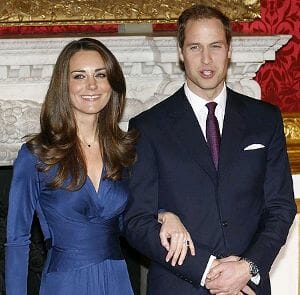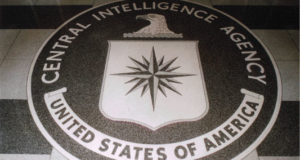 LONDON — The April 29, 2011 wedding of Prince William of Wales and Kate Middleton promises to bring an end to the decades long civil war between Greater London and Berkshire Counties in south-east England. The couples’ November 2010 engagement brought a limited cease fire, but within days, regional Roundheads and Royalists were accusing each other of breaking the agreement.
LONDON — The April 29, 2011 wedding of Prince William of Wales and Kate Middleton promises to bring an end to the decades long civil war between Greater London and Berkshire Counties in south-east England. The couples’ November 2010 engagement brought a limited cease fire, but within days, regional Roundheads and Royalists were accusing each other of breaking the agreement.
Kate Middleton’s father, Michael Francis Middleton called for calm Monday after his Roundhead forces repelled a Royalist attempt to storm his Reading mansion. “The wedding is not far off, now, and so we have reached the dawn of a new era of hope,” Middleton said in a televised address. He urged the county of Berkshire to lay down its weapons in light of the coming unification of the counties. Royalist forces continue to hold Middleton’s wife hostage, former British Airways flight attendant, Carole Elizabeth Middleton.
Michael Middleton offered his daughter in marriage to Prince William in June of 2009, following the sixth Royalist victory, north of Reading. Prince William accepted the proposed alliance as “most satisfactory” and conceded, “the need to move beyond petty borough bloodshed.”
On April 29, under United Nations protection, Miss Middleton will travel to Westminster Abbey by car, where she will meet Prince William face-to-face for the first time. The Archbishop of Canterbury will introduce William and Kate and marry them in a traditional alliance ceremony. After the service, the couple with travel in a carriage procession to Buckingham Palace for a reception hosted by the Queen, followed by a private dinner, dancing, and a deer hunt.
Not all parties in the conflict endorse the impending marriage alliance. Berkshire County Member of Parliament, Adam Benyon said Friday, “the Royalists always get their way, and now we’re buying them off with women. It’s shameful.” Fellow Berkshire MP, Fiona Redwood, added, “the Middletons surrendered their Kate too easily. This will be the end of any unique identity for Berkshire County. There will be nothing left of us.”
The Lord Lieutenant of Greater London, Sir David Brewer, complained, “the Berkshire rebels remain entrenched in the seventeenth century. This marriage simply condones their barbarous ways and, in fact, brings that barbarism right into Buckingham Palace.” Brewer added it would take centuries to overcome the backwardness of Berkshire blood.
The civil war flared up in 1995, when renegade leaders in both Greater London and Berkshire Counties exchanged land via the Berkshire-Buckingham Order 1994, in which Colnbrook and Poyle lands transferred into Berkshire, creating a direct border connection between Berkshire and Greater London Countries. Riots ensued, with more than 200,000 people, mostly civilians, being denied tea for weeks on end. An estimated 700,000 Berkshire inhabitants could not get to sleep until very late for six months. Royalists responded by cutting cable connections to televised football matches. Fruitless peace talks have come in fits and starts since 1998. With each failure, the general elbowing and glaring has continued, and the tragic toll of the civil war has continued to mount.
On Dec. 11, a Greater London army spokesperson told reporters the army had used strong, firm language to “free positions that were encircled by rebels,” but acknowledged that it was difficult to distinguish rebels from normal shoppers and laborers. “To my knowledge, most of the pushing and shoving has stopped,” he said, adding that “there are pockets of resistance here and there, especially around butcher shops on holidays.”
Berkshire County is home of Windsor Castle, and bad blood has existed between the county and the Royals since Berkshire inhabitants betrayed James II to William of Orange at the Battle of Reading on December 9, 1688. James II’s had stationed his troops in the county to block William’s advance to London, and rumor spread that James’s force of 600 would soon massacre Berkshire residents. This turned out to be a misunderstood joke. When the battle started, Berkshire men fired upon Royal troops from the safety of their windows. About 35 Royals died in the battle, and the people of Berkshire celebrate their victory to this day with whistles and furious waving of sticks and banners from their second story balconies.
In response to Berkshire County’s surrendering of Kate Middleton, the Royals have agreed to cede their rule of Picardy and eastern Normandy, France to Berkshire County. In 1066, William the Conqueror of France, confiscated Berkshire lands to found his Battle Abbey, but in 1538, Henry VIII destroyed the abbey for its wealth. On Friday, the Royals conceded that their “surrender of Picardy and east Normandy are indeed worthy of the glory of a Kate Middleton.” The French government has called for immediate talks under UN supervision.
Due to the political successes that the upcoming Royal wedding promises, Prince William has determined to follow the same policy in bringing peace to other war-torn places with connections to British rule. On Tuesday, William announced his desire to court Libyan and Egyptian ruling-class women as potential wives. Kate Middleton could not be reached for comment.
 Off The Grid News Better Ideas For Off The Grid Living
Off The Grid News Better Ideas For Off The Grid Living



